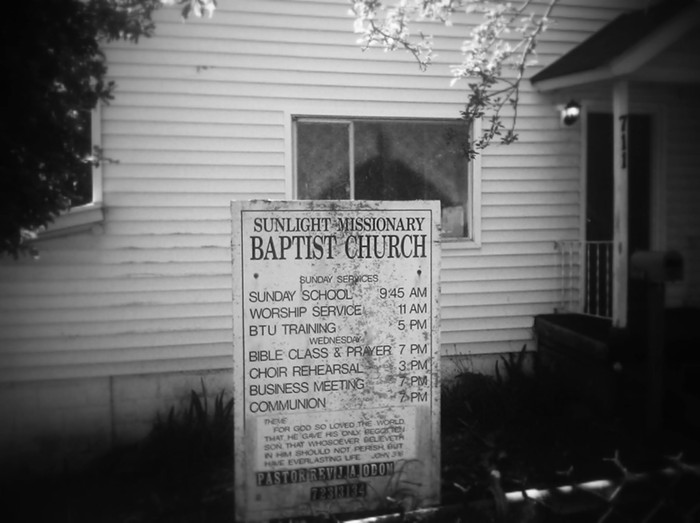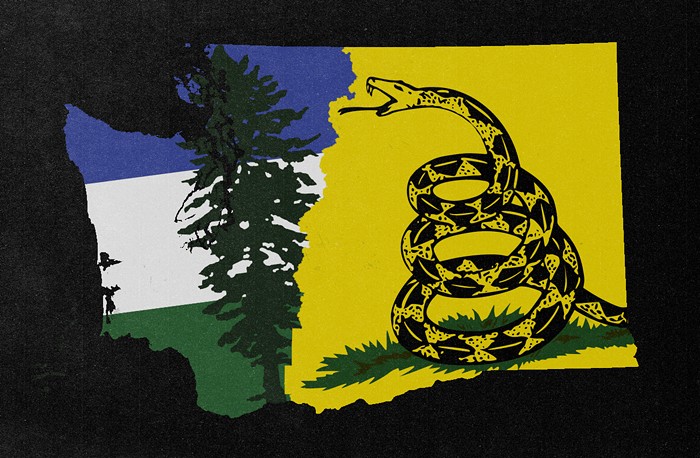
Washington state is a national leader in bringing transparency to the dark world of online political advertising.
The law here is so tough, in fact, that Google announced in June 2018 that it would no longer sell political ads for local races in Washington state because it's not currently able to meet this state's disclosure requirements. About two weeks ago, Facebook followed suit.
But Google's political ad ban, official for six months now, has turned out to be rather porous. Public records show the company continued to sell ads to Washington state campaigns long after it announced its ban in June 2018, receiving payments for more than $13,000 in Google advertising services that targeted local races and ballot measures through the November 2018 election.
Google spokesperson Alex Krasov said the company's ban on Washington state ads nevertheless remains in effect. "Advertisers that submit these ads are violating our policies," Krasov said. "We take measures to block these types of ads—when we find violating ads, we remove them."
But one candidate for Washington state legislature shared an October 2018 e-mail with The Stranger that he said came from a Google political ad sales specialist who knew his race was in Washington state, yet still encouraged him to buy ads—which the candidate did, to the tune of nearly $3,000. Krasov is looking into the matter.
Google's income from these post-ban ad sales is likely insignificant to the company, which is valued at more than $750 billion. Compared to the more than $360,000 the company took in from ads aimed at Washington state's local elections in 2017, the year before the ban, the income is also relatively small change.
But the fact that multiple Washington state legislative candidates, as well as committees fighting over two different local ballot measures, were recently able to buy Google ads highlights a significant problem: six months into its local ad ban, Google apparently hasn't found a way to fully stop itself from accepting such purchases.
Early Signs of a Flawed Ban
Back in September 2018, I reported that in the three months after it announced its ban, Google had sold $6,227.89 in local political ads, including ads for two Washington state legislative races and a Spokane judicial race. Google pulled ads bought for that Spokane judicial race soon after my story came out.
Since my September 2018 story, Google has continued to sell local political ads to Washington state campaigns, ringing up an additional $7,225.13 in reported ad sales, according to campaign filings released by the Washington State Public Disclosure Commission.
That adds up to a grand total of $13,453.02 in local political ads that Google sold in the six months since it announced it would no longer be selling such ads.
Although Google said these sales violate its policies, it has not offered much detail on how it's enforcing its Washington state ad ban—and it has not yet responded to a question about whether the ban applies to all platforms owned by Alphabet, Google's parent company.
"It seemed that any 'ban' was being selectively enforced."
But the experience of Chad Magendanz, a former Microsoft developer and Washington state legislator, indicates that Alphabet subsidiaries Google and YouTube were both accepting local political ads through the November 2018 election.
Magendanz showed The Stranger an e-mail from Google dated October 26, 2018. In it, a Google ad salesperson suggested ad buys for Magendanz in his race against Democrat Bill Ramos for a state house seat representing south King County's 5th Legislative District.
According to Magendanz, the Google ad salesperson he was working with "was very much aware that mine was a state legislative campaign in Washington state... I was told that his team specialized in these types of accounts."
The race in the 5th was a close one, with Magendanz ultimately losing to Ramos by two percentage points, which amounted to just 2,280 votes.
Magendanz admitted he'd heard back in June about Google's local ad ban, but said he'd assumed the ban had been rescinded when he saw Google ads running for other local candidates in the lead-up to November.
In fact, Magendanz had been annoyed that he was only able to close his Google ad deal 11 days prior to Election Day.
"I was frustrated that I was so late to the game and still believe that the delay left me at a competitive disadvantage," he said. "It seemed that any 'ban' was being selectively enforced."
Magendanz ultimately spent $2,944.26 on Google and YouTube ads, just a little bit shy of the estimate provided to him by the Google ad salesperson. Magendanz's opponent, Ramos, reported spending tens of thousands of dollars on digital ads, and Magendanz said he believes he saw some Google ads for Ramos, who is now a state lawmaker.
Asked whether the Ramos campaign indeed purchased Google ads, Halei Watkins of Moxie Media, Ramos's political consulting firm, said: "Certainly not directly and not knowingly."
Watkins said she was well aware of Google's local ad ban at the time, and that her firm "had a lot of proactive conversations" about the Google ban with the sub-vendor that handled Ramos's digital ad purchases.
Google Ads from Mercer Island to Skagit County
On Mercer Island, a successful anti-tax campaign was also able to purchase 2018 general election advertising services from Google.
The group "Mercer Islanders for Sustainable Spending," which was on the winning side of a fight over the island's "Proposition 1," reported spending $251.17 on what Michael R. Cero, the group's leader, said was probably an effort to get his group's web page to show up against certain Google search terms.
Though Cero's side won a solid victory against Prop 1's plan to raise property taxes to pay for public safety and social services, Cero said his opponents were actually the "more socially adept" bunch (by which he meant more adept at using social media), and so he doesn't believe his campaign's small Google ad purchases played any significant part in Prop 1's defeat.
“I don’t think that did anything at all," Cero said.
He added that he was unaware at the time of the purchases that Google had banned such ads.
Up in Skagit County, the victorious but blandly-named "No On Charter Committee" reported spending quite a bit more on Google ads—$3,850 for a local ballot measure fight that was focused on the very structure of the county's government.
Unlike King County, which holds Seattle, Skagit County lacks a county council, a county executive, and even a county constitution, according to Brenda Cunningham, who managed the unsuccessful campaign to add these features to her local government.
Her group, "Home Rule Skagit," was battling against the "No On Charter Committee," and Cunningham's people funneled the vast majority of their ad spending into newspapers. "We are just not that savvy," Cunningham said, adding that her opponents' use of digital media and "their purchasing of ads in all different ways surprised us completely. We weren’t expecting that at all.”
But Cunningham believes the bigger factor in her side's loss was the subject matter, not any ban-violating Google ads purchased by the "No On Charter Committee" folks.
"It's a hard lift because you have to educate citizenry about civics to begin with, before their eyes glaze over," Cunningham said. She added that those in favor of remodeling Skagit County government hope to be back on the ballot in the future, after some "deep canvassing" and educational outreach.
Over at the victorious "No On Charter Committee," chair Don Munks said he was not aware of Google's ad ban at the time his group made its ad purchases. And the campaign's treasurer, Bruce Ayers, asked: "If Google wasn't accepting ads, why did they accept ours?"















